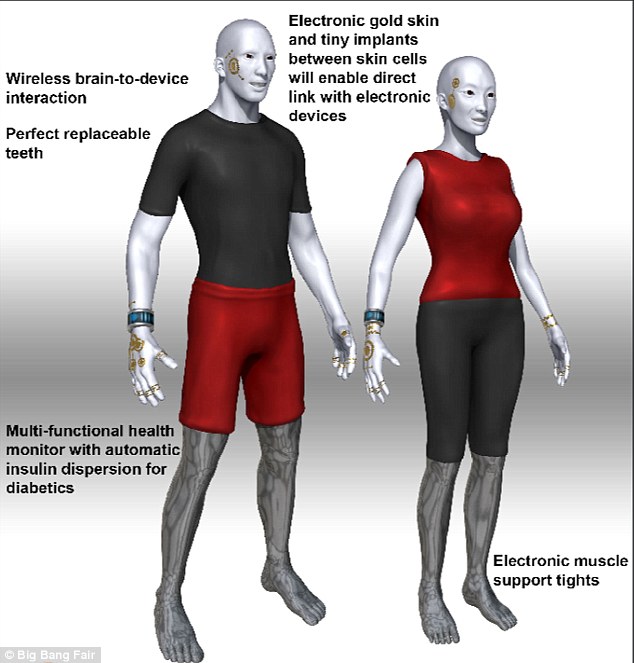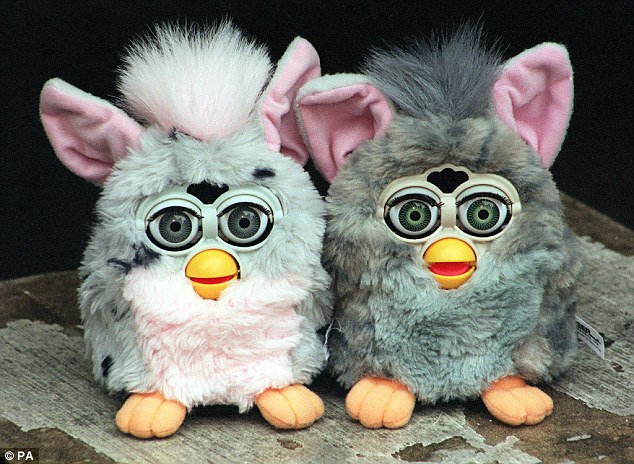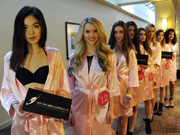


Research from academics and experts, collated by Dr Pearson for The Big Bang Fair, suggests humans will be able to directly communicate with electronics and we could clone teeth, fix surfaces and edit genes to make them self-replace (illustrated above)
'We will certainly technologically advance some of our pets and even wildlife too and we might create entirely new species such as real Furbies,' Dr Pearson continued.
The predictions mean futuristic characters such as Dug the talking dog in Pixar's Up and the human-robot hybrids popular in hit TV shows like Humans could be a reality.
The Big Bang Fair – the UK's largest celebration of science, technology, engineering and maths (Stem) for young people - will give access to technologies shaping these developments, from a sensor placed on the skin that allows people to hear music using bone conduction, to robot orchestras.

'We will certainly technologically advance some of our pets and even wildlife too and we might create entirely new species such as real Furbies,' Dr Pearson continued
'It's the young people who come to the fair who will help drive through the innovations our experts are predicting,' said Paul Jackson, chief executive of EngineeringUK, organisers of The Big Bang Fair.
'Today's young people will not only get to experience 'wearing' muscles or owning smart-pets, they will decide what these look like.'
The Big Bang Fair is free and runs from 16 to 19 March at the Birmingham NEC.
 |
Day|Week

 'Coldest town in China' — a fairyland you don't want to miss
'Coldest town in China' — a fairyland you don't want to miss Deep love for breathtaking Hainan
Deep love for breathtaking Hainan Beautiful Chinese tennis player Wang Qiang goes viral online
Beautiful Chinese tennis player Wang Qiang goes viral online Minus 71 degrees! Coldest village on earth
Minus 71 degrees! Coldest village on earth Chinese pole dancing master opens class in Tianjin
Chinese pole dancing master opens class in Tianjin The most beautiful town of snow in China
The most beautiful town of snow in China SWAT members hold romantic wedding in E China
SWAT members hold romantic wedding in E China Breathtaking scenery and simple lifestyle in Hainan
Breathtaking scenery and simple lifestyle in Hainan Finding sexiest underwear supermodels
Finding sexiest underwear supermodels Top 10 ancient pagodas in China
Top 10 ancient pagodas in China